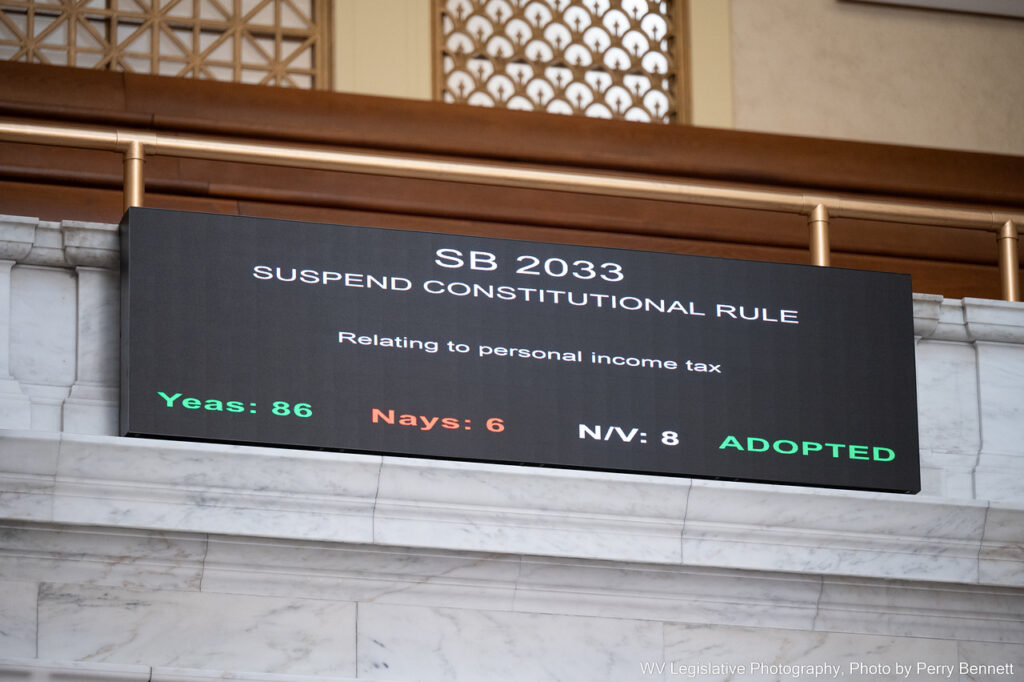Digging Into Halloween’s Rich History, This West Virginia Morning
Halloween is more popular than ever. We speak with WVU religious studies professors to learn more about the holiday's rich history.
Continue Reading Take Me to More News
Updated on Oct. 9 at 3:15 p.m.
The House of Delegates passed the Senate’s revised bill to cut income tax rates by 2 percent Tuesday after Gov. Jim Justice amended his special session call from a 5 percent income tax cut to a 2 percent income tax cut.
The Senate passed the 2 percent cut Monday, and the House debated the bill 40 minutes.
“Although I had publicly said that I was all in favor of 5 percent obviously my counterpart in the Senate has emphatically said no,” Del. Vernon Criss, R-Wood, said, referencing Sen. Eric Tarr’s, R-Putnam, opposition to the 5 percent cut. “So as we go along through the exercise of legislation, we have gotten a new message from the governor to do a 2 percent cut.”
Del. Mike Pushkin, D-Kanawha, introduced two amendments: one that would increase the tax cut back to 5 percent and another that would require permanent foster care placement for all children in the state within 30 days after the 2 percent cut was passed. The House rejected both.
“The average working class West Virginian’s maybe going to get like 40 cents a week, not a whole lot for a 2 percent income tax cut,” Pushkin said.
Republicans in the House voiced support for a tax cut to directly return money to West Virginians, compromising with the Senate’s version.
The fiscal note for the bill lists the cost of the tax cut at $46 million upon full implementation. Secretary of Revenue Larry Pack, part of the governor’s office, told the House Finance Committee Sept. 7 that the 2 percent cut could be funded with $19 million from a paid-off bond and $25 million is from cost-saving measures after breaking up the Department of Health and Human Resources.
The Department of Human Services referred WVPB to the Governor’s office when asked for cost-saving details.
**Editor’s Note: This story was updated to include the bill’s fiscal note and correct the total cost of the bill to $46 million and DHS’ response.